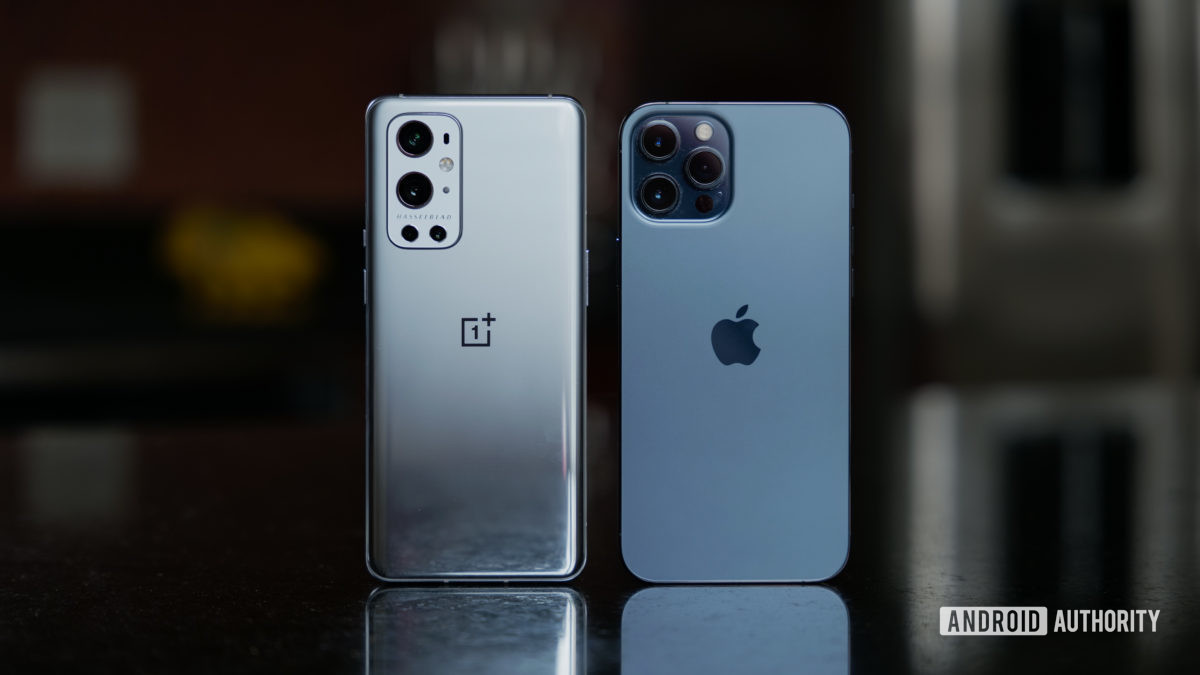Why the haptics in your smartphone matter

You probably didn’t buy your latest smartphone with its haptic feedback in mind, but there’s a good chance you’ve noticed it. The quality of haptics on offer varies across the board. For every iPhone or OnePlus phone with tight-as-a-drum feedback, there are seemingly a dozen phones with vague, buzzy vibrations that make you want to disable the feature altogether.
But how much does it matter? More than you might think. It’s not just a reflection of your phone’s quality — in some cases, it can improve the functionality of the phone. Here are a few reasons why you’ll want to consider haptics an important feature the next time you’re shopping for a handset.
Haptic feedback makes your phone easier to use

Haptics are an acknowledgment that you’ve performed a task, like typing on the keyboard or reaching the end of a list. That, by itself, is tremendously useful in practice. You’ll know when to stop scrolling, when a pull-to-refresh command worked (particularly helpful for social networks), or whether you missed a key. In the best-case scenario, they can even save you from looking at the screen.
Great haptics elevate the quality of a phone and encourage companies to think holistically about design.
The better the haptics, the more intuitive your phone becomes. On an iPhone, for instance, the subtle tick-tick-tick of scrolling through a pull-down menu makes it easier to stop exactly on the item you want. Think of good haptics as improving responsiveness in the same way a high refresh rate display does — they reduce the time you spend navigating your phone.
That interaction can even be crucial for accessibility. If you’re visually impaired, haptic vibrations may be the best way to confirm button presses or find your way around the interface. Both Apple and Google consider physical feedback an important aid when audiovisual cues aren’t options. These vibrations can notify you of a call or error message that you’d otherwise miss. In that light, good haptics can be all-important for certain people.
They sweeten your experience
![]()
There’s also a simpler, harder-to-quantify reason to seek out improved haptic feedback: it makes your phone more enjoyable. Haptic feedback came about in part to provide livelier interaction than you’d get touching “dead” glass. Why shouldn’t it be as sophisticated as possible?
A good haptic system, whether it’s the iPhone’s Taptic Engine or the motors in Huawei’s Mate 40 Pro, creates a more immersive experience. Your phone feels more like it’s responding to you, or even working in harmony with you. While it would be a stretch to say your phone comes alive, good haptics can make it feel like more than a hunk of glass and metal. The technology is even, dare we say it, fun — you might want to scroll through a list or type a lengthy message just to feel those subtle thumps and taps. Plus, it can make a huge difference to the mobile gaming experience.
See also: Advanced haptics are coming to Android
Like we said at the beginning, haptic feedback can skew your perception of a device. Subtle, precise feedback can boost the perceived quality of a phone, even if it’s not a premium-priced model. A system that buzzes and rattles, meanwhile, can make even the most expensive handset seem cheap. Ultimately, it reflects attention to detail. If a company is thoughtful enough to make your phone’s tactile response a delight, there’s a good chance it devoted the same consideration to the rest of the hardware.
As such, we should encourage our favorite phone brands to put more effort into haptic feedback. It not only elevates the quality of a phone, but it also encourages companies to think holistically about design. You might get a better-made device even if you don’t particularly care for haptics, and it may make you appreciate the technology where you didn’t before.
from Android Authority https://ift.tt/3vhS68Q


Post a Comment